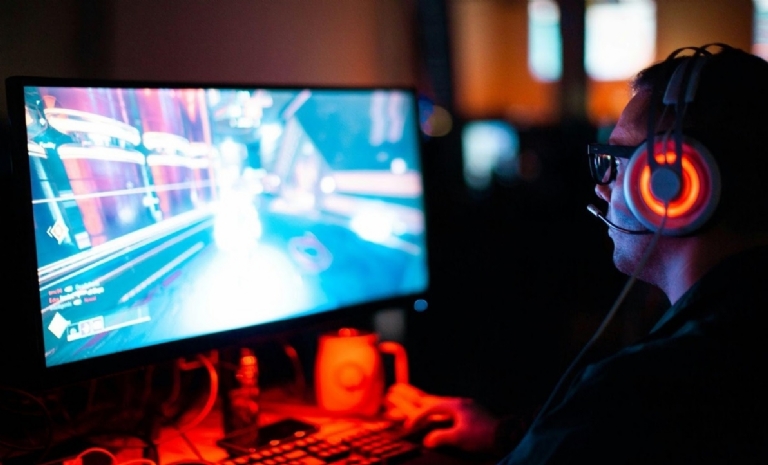

The US has emerged as a primary external market for Brazilian game developers, a dynamic underscored by various factors that illustrate the increasing potential of Brazil's gaming industry and the strategic importance of the US market.
Brazil's gaming sector has witnessed remarkable growth, with the Brazilian video game industry experiencing a 169-percent increase over the last four years.
The surge is attributed to the industry's pandemic-induced globalization, which dismantled geographical barriers and fostered the rise of remote work. Such an environment has made it significantly easier for Brazilian developers to collaborate with international partners, especially those in the US?.
Historical Context and Growth of Brazilian Game Development
Brazilian game development has undergone significant evolution over the past two decades. Initiatives like JogosBR in 2004 and its successor, BRGames, marked early governmental recognition of the sector.
By the early 2000s, Brazil had already begun exporting games, with Trophy Hunter 2003 being a notable example. Expanding internet access, digital distribution, and establishing higher education courses in game design catalyzed the industry's growth.
From 2011 to 2017, the industry saw a doubling of revenue, aided by the popularization of game development engines like Unity and the rise of smartphone gaming. This era also witnessed the success of indie developers on international platforms, a trend exemplified by games like Knights of Pen and Paper and Oniken?.
Cultural Affinities and Linguistic Accessibility
Brazilian game developers have successfully navigated the cultural and linguistic nuances to make the US their primary external market. Brazil's business culture, characterized by its emphasis on personal relationships, indirect communication, and a flexible approach to time and deadlines, contrasts with the more direct, efficiency-focused, and punctual nature of the US business environment.
Brazilian developers have leveraged these cultural nuances to their advantage despite these differences.
Understanding the importance of personal connections in Brazil has helped these developers navigate the US market, where networking and relationship-building also play a significant role in business success. The adaptability of Brazilian developers, accustomed to navigating Brazil's more consensus-oriented decision-making and collective approach, has enabled them to engage effectively with the diverse and dynamic US market?.
Moreover, the personal and often informal nature of business in Brazil, where personal and professional lives are more integrated and social interactions are more emphasised, has facilitated a smoother cultural exchange.
Case Study: Brazilian Developers in the Online Casino USA Market
The Brazilian gaming industry, including the segment encompassing online casino USA developers, is vibrant and expansive, exhibiting a dynamic culture that has begun to make its mark on the global stage, including the United States.
Brazilian developers have grown greatly in various gaming genres, from indie titles to more comprehensive educational and potentially casino games.
Brazil's history with real-money gaming has been complex, marked by various legal challenges and changes. It evolved from lotteries and horse race betting being the only legal forms of gambling to more liberalized forms such as sports and fixed-odds betting, which were formally legalized in 2018.
However, the lack of specific regulations for locally operating bookmakers and framework laws for other real-money games like casinos has led to reputable online gaming companies operating under foreign licenses.
Economic Factors and Market Size
The United States, recognized for its substantial market size and consumer spending power, presents a promising landscape for Brazilian game developers eyeing global expansion. This perspective gains traction considering Brazil's position as the largest gaming market in Latin America, characterized by its rapid growth and burgeoning talent pool.
Notably, the rise of Brazilian game development companies, such as Wildlife Studios—which achieved unicorn status—highlights the economic potential and success that can be attained by targeting foreign markets, including the U.S.
Brazil's gaming sector has demonstrated resilience and growth despite global challenges. For instance, the gaming market in Brazil generated revenue of $2.3 billion in 2021, with expectations of continued growth. The robust performance is underpinned by a high engagement level within the Brazilian population, where approximately 70% engage in gaming, predominantly on mobile platforms.
Technological Synergies and Infrastructure
Brazil's embrace of mobile gaming, fueled by a significant portion of its 200 million population, showcases its technological synergy with global trends. Developers like PushStart have leveraged cross-media strategies, integrating digital apps, animated series, and social media to broaden their reach.
Such innovative approaches align well with the US market's openness to cross-platform gaming experiences?

Conclusion
The primary factors contributing to the US being the main external market for Brazilian game developers include a rich historical context of game development, cultural and linguistic affinities, significant economic opportunities, and technological synergies. Understanding market dynamics, cultural nuances, and technological trends is crucial for successful international expansion.